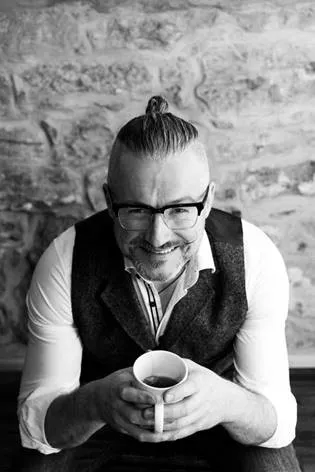
What made you study at UL?
In 2013 I went on a soul-searching mission to find out what I wanted to be when I grow up! At that time, I was in my mid-thirties, self-employed, and questioning my path in life. I had completed an introductory course in biodynamic psychotherapy and was about to sign up for the full-time training. As music has always been a huge part of my life, I remember asking the lecturer at the time if they ever use music in this type of practice? She answered “It’s not something we use here, but it’s not to say it can’t be done. Have you ever considered music therapy?” To which I answered, “What’s that?”
And so began my journey towards UL. I did some additional research into the course and discovered that UL was the only university in Ireland to offer the MA in music therapy. It took some time for me to figure out a way to make it happen, but thankfully it all came to fruition. (Truth be told, it took me a long time to convince myself to break free from the shackles of a safe existence, to be brave enough to challenge my destiny, and take a completely different path in life!)
I did some additional research into the course and discovered that UL was the only university in Ireland to offer the MA in music therapy.
What did you learn on the course?
I learned so much over the course of the two years, on a diverse range of topics and from the most experienced professionals in the field. Musically speaking, we were challenged in a new and exciting way each week, and the group approach was both an inviting and inspiring way to learn. We learned many new skills and techniques on a variety of instruments, and how to implement it in a clinical environment.
Academically speaking, we learned a whole new vocabulary of clinical terminology, a crucial component for understanding the broad variety of referrals we encounter as health care professionals. We learned about research and about the importance of the peer review process. About the importance of this ongoing research to develop the ever-growing evidence base which supports the profession. And, how to identify opportunities for research and how to conduct our own research studies.
What is unique about the programme?
Everybody has their own unique way of learning, and the course is designed in a way which encourages such. We had a wonderfully diverse class, in terms of age and background, and the smaller classes helped to ensure a deeper level of engagement in every aspect of learning and training. There was a truly fantastic bond among the class and faculty which always gave the feeling of being constantly supported no matter the challenge….and there were many! But with each challenge, there always came that sense of personal growth afterwards. Personal therapy and self-reflection were central to that growth also, and we had the opportunity to experience many different therapies e.g., art therapy, GIM, group psychotherapy to name a few.
Can you describe how you found your clinical placement experience and the main things you learned whilst on placement?
I found it hugely beneficial to transfer the theoretical learning from UL directly to our on-site placements. And to see how MT can be integrated into so many different clinical settings was invaluable experience. Having both on-site and off-site supervision meant that you were fully supported along every step of the process, which helped greatly in building confidence as a therapist. It was wonderful experience to work as part of a multi-disciplinary team and to understand that approach to healthcare. It really helped in terms of finding your role among the team, managing levels of expectation, and the importance of patience, understanding and clear communication.
Can you tell us about your own personal experience of the course, the benefits/challenges etc.?
It was without doubt one of the most challenging but rewarding things I’ve ever done. I don’t use the term “life changing” lightly, but it truly was. The nature of the training encourages a light to be shone on absolutely every aspect of your being, and as a result, comes the deepest sense of personal growth and development. Which ultimately ensures we are truly ready to embark on the journey as practicing music therapists.
I was new to academia, and it took me a while to adapt to an educational environment (I did not complete an undergraduate degree and entered the programme via the ‘recognised prior learning’ route, having worked as a carpenter and a gigging musician prior to training). I spent the majority of first year ‘learning how to learn’ but the endless support and encouragement from classmates and faculty made sure I eventually figured out how to navigate my way through.
Would you recommend the MA to others?
The skills acquired over the course of the training are invaluable tools for the journey through life, whether you intend to practice as a music therapist after. I would strongly recommend this programme.
What have you done since graduation?
After graduating I was encouraged by Dr. Hilary Moss to collaborate on a research paper, something for which I am most thankful. If someone told me at the beginning of this journey that I’d have a publication in an academic journal, let alone even consider the prospect of such, I’d have told them they need to see a therapist!
Fellow graduate Lisa Kelly and I have co-founded Anam Music Therapy and are working hard on building and developing the service in the west of Ireland.
Full course details and page:
